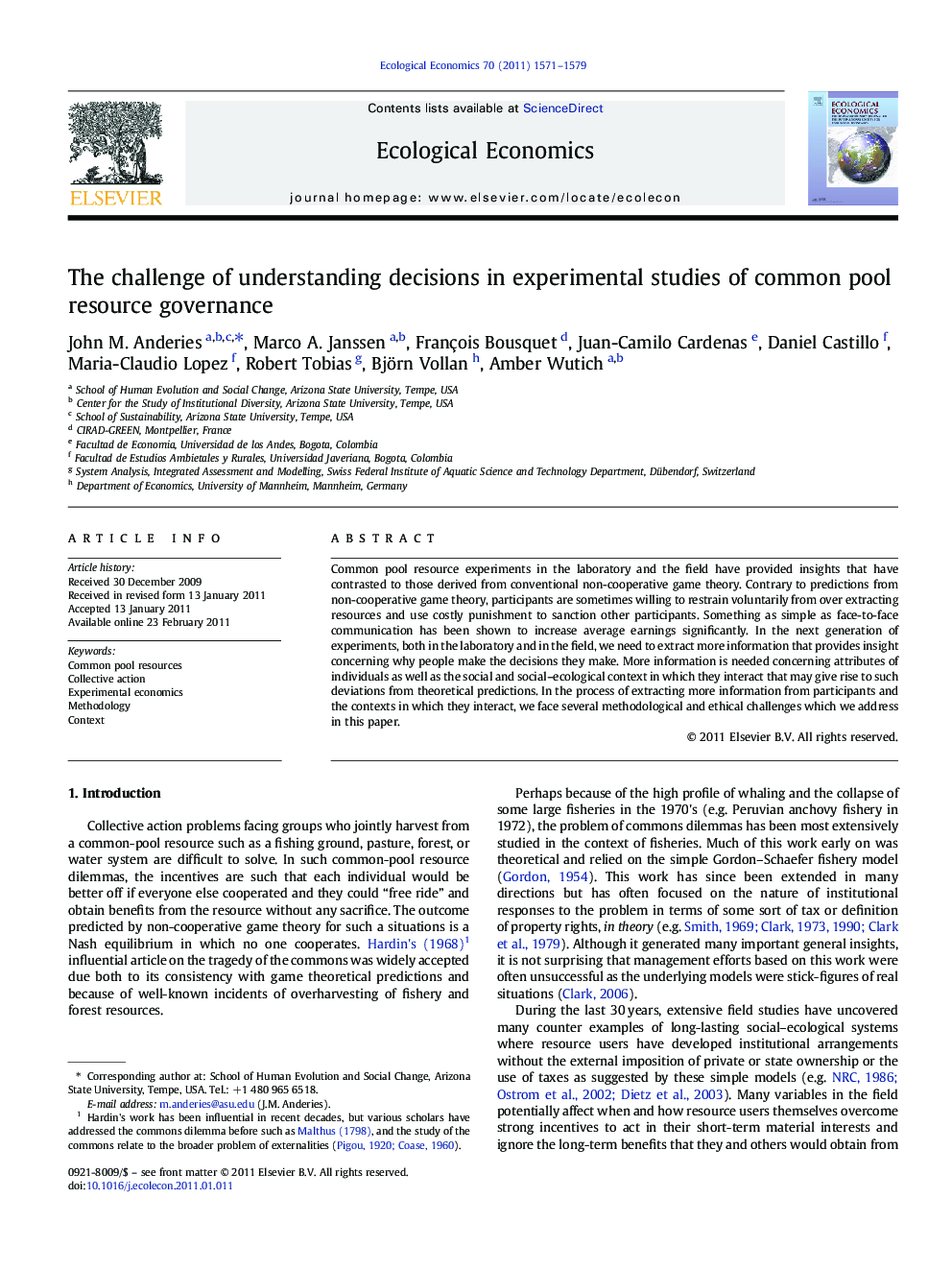| Article ID | Journal | Published Year | Pages | File Type |
|---|---|---|---|---|
| 5050621 | Ecological Economics | 2011 | 9 Pages |
Common pool resource experiments in the laboratory and the field have provided insights that have contrasted to those derived from conventional non-cooperative game theory. Contrary to predictions from non-cooperative game theory, participants are sometimes willing to restrain voluntarily from over extracting resources and use costly punishment to sanction other participants. Something as simple as face-to-face communication has been shown to increase average earnings significantly. In the next generation of experiments, both in the laboratory and in the field, we need to extract more information that provides insight concerning why people make the decisions they make. More information is needed concerning attributes of individuals as well as the social and social-ecological context in which they interact that may give rise to such deviations from theoretical predictions. In the process of extracting more information from participants and the contexts in which they interact, we face several methodological and ethical challenges which we address in this paper.
Research Highlights⺠Commons dilemma experiments contrasted with conventional non-cooperative game theory. ⺠Importance of communication and costly punishment for cooperation. ⺠Future research needs to focus on why people make the decisions they make. ⺠Information needed concerning the individual attributes as well as the social and social-ecological context. ⺠Experiments involve methodological and ethical challenges.
